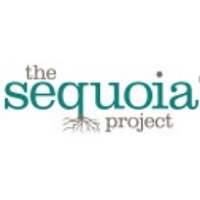 The Sequoia Project, a non-profit and trusted advocate for nationwide health IT interoperability, in collaboration with the American Health Information Management Association (AHIMA), unveiled a data usability validator tool for health information exchanged in the United States.
The Sequoia Project, a non-profit and trusted advocate for nationwide health IT interoperability, in collaboration with the American Health Information Management Association (AHIMA), unveiled a data usability validator tool for health information exchanged in the United States.
As part of the Data Usability Taking Root movement, any organization that pledges to adopt The Sequoia Project Data Usability Implementation Guide Version 1 is eligible to subscribe to the first-of-its-kind data usability validator testing tool to improve data usability and quality and testing services. The Sequoia Project has been supporting content testing programs and providing feedback from lessons learned to HL7® to improve the C-CDA standard since 2018.
“The groundswell of support for the Data Usability Taking Root movement has been inspiring,” said Mariann Yeager, chief executive officer of The Sequoia Project. “More than 60 health systems, electronic health records (EHRs), health IT service providers, and others have joined our community, which is sowing data quality improvements for the good of all health data users.”
Data Usability Taking Root supporters meet monthly to share best practices in data usability in all projects and jointly develop technical tools and assistance. Focused on advancing real-world improvements, these pioneering organizations are guiding the creation of a Data Usability Scorecard, Data Usability Implementation Guide Version 1 Compliance Readiness Checklist, Data Usability Implementation Guide Version 2, HL7 Virtual C-CDA Implementation-A-Thon tracks, and a new data usability validator.
The data usability validator tests conformance to the Data Usability Implementation Guide Version 1 and is a new module within the best-in-class Interoperability Testing Platform (ITP). The Sequoia Project ITP is a set of more than a dozen self-service testing tools covering transport, security, usability, and content used by healthcare and healthcare IT organizations to improve their health information exchange capabilities. The ITP is widely available, and The Sequoia Project members receive steep subscription discounts.
“AHIMA is encouraging our members and the entire healthcare community to join the Data Usability Taking Root movement,” said AHIMA Chief Executive Officer Dr. Kevin Klauer, DO, EJD, FACEP, FACOEP. “By joining the movement and taking the new pledge to implement data usability improvements, you will get access to exclusive tools, like the checklist and validator, and subject matter experts.”
“Together, we can improve quality of care with data quality,” said Didi Davis, vice president of informatics, conformance, and interoperability of The Sequoia Project. “It’s not too late to join the movement. Assess your organization’s data usability readiness with our checklist, identify areas for improvement, take the pledge, and validate your progress toward more complete, higher quality, and usable health data.”
For questions and more information, email TakingRoot@sequoiaproject.org.
About AHIMA
AHIMA is a global nonprofit association of health information (HI) professionals with more than 67,000 members and more than 100,000 credentials in the field. The AHIMA mission of empowering people to impact health® drives our members and credentialed HI professionals to ensure that health information is accurate, complete, and available to patients and providers. Our leaders work at the intersection of healthcare, technology, and business and are found in data integrity and information privacy job functions worldwide.
About The Sequoia Project
The Sequoia Project is a non-profit, 501c3, public-private collaborative chartered to advance implementation of secure, interoperable nationwide health information exchange. The Sequoia Project focuses on solving real-world interoperability challenges and brings together public and private stakeholders in forums like the Interoperability Matters cooperative to overcome barriers. The Sequoia Project is also the Recognized Coordinating Entity (RCE) for the Office of the National Coordinator for Health Information Technology’s Trusted Exchange Framework and Common Agreement (TEFCA), for which it developed, updates, implements, and maintains the Common Agreement component of TEFCA and operationalizes the Qualified Health Information Network (QHIN) designation and monitoring process.
